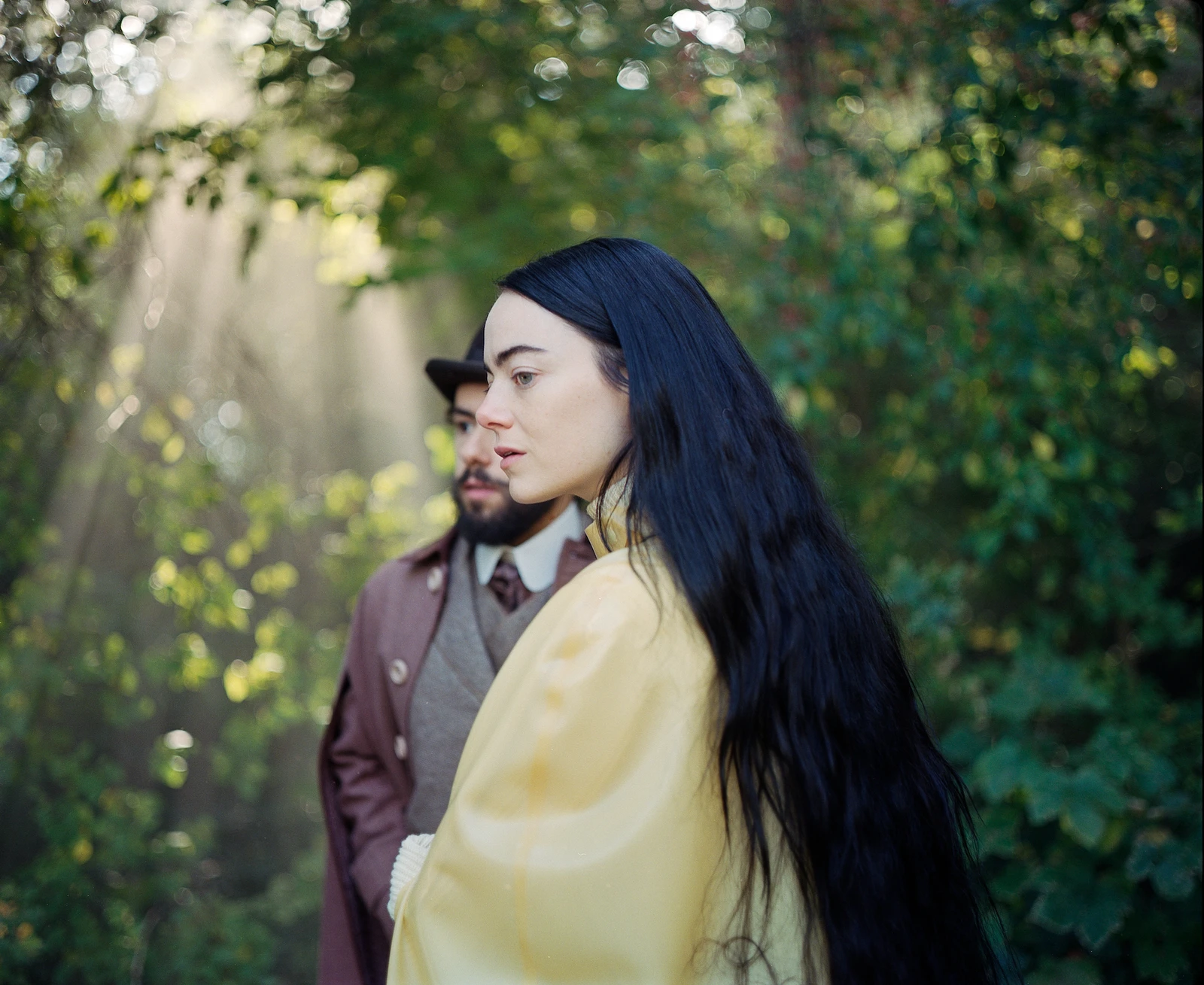While the settings of Yorgos Lanthimos’s films have varied wildly, from a hotel for singles in a seemingly dystopian society in The Lobster, to the upper-class home of The Killing of a Sacred Deer, or the eighteenth century British royal court of The Favourite, they all contain the same absurdist streak. What is often the darkest of material becomes fodder for comedy of the blackest stripe.
His most recent film Poor Things retains these elements but tells a tale that is ultimately life-affirming. In Victorian London, Dr Godwin Baxter (Willem Dafoe) reanimates the corpse of a young woman (Emma Stone). He names her Bella and she calls him “God”. Godwin enlists the help of a medical student, Max McCandles (Ramy Youssef,) to observe Bella as she develops. While Bella looks like an adult woman, she has the brain of an infant, initially struggling with her speech and motor skills but quickly learns and adapts to her surroundings, expressing an unbridled curiosity in everything this new life promises.
This first section is shot in Gothic black and white, with Godwin’s home a womblike space with curved walls and ceilings that looks like ear ridges, adorned with bubbling beakers and tubes. Godwin is a textbook mad scientist, but one who himself was subjected to cruel experimentation by his own father, resulting in a monstrous appearance (and the need to emit large gastric bubbles from his mouth). Although he views Bella as an experiment, he nevertheless establishes a fatherly bond with her, wishing to protect her from dangers beyond their door.
In this mad scientist’s lab Lanthimos and DP Robbie Ryan go a bit mad too, furiously jumping between angles, lenses, and other optical effects. This can be off-putting for some but perfectly captures the chaos unleashed by this new form that transgresses the very boundary separating life from death.
In this respect there are similarities to Lanthimos’s previous film Dogtooth, which also had parents who imprisoned their children in the home, an act that leads not to conformity but to perversion (Godwin’s other creations, hybrid animals such as a dog with a chicken body, are also reminiscent of the threat of becoming animal in The Lobster). In Dogtooth the consequences of isolation are violent and disturbing, while in Poor Things Bella is able to break free of these parental constraints.
Bella’s infantile state, expressed through a doe-eyed stare, stilted speech, and toddler waddle, nevertheless become, in Max’s words, “enchanting”. One day at the dinner table some fumbling with an apple results in Bella’s first orgasm. However, the Biblical parallels stop here, for although Max tells Bella that such activity is not for “polite society”, she rejects shame and becomes determined to pursue pleasure and everything else that awaits her in the world outside.
Enter Duncan Wedderburn (an unexpectedly hilarious Mark Ruffalo), a caddish lawyer, who falls deeply in lust with Bella and provides a means of escape. And thus, the film mutates from Frankenstein to Candide, following Bella and Duncan as they travel across Europe. At first, they shag endlessly (which Bella refers to as “furious jumping”), punctuated by brief recesses where Bella samples other delights such as oysters and Portuguese custard tarts.
But after meeting fellow travellers Martha and Harry (the unlikely duo of Fassbinder regular Hanna Schygulla and comedian Jerrod Carmichael), Bella becomes intrigued by ideas and philosophy, wanting to expand her mind as well as exerting her body. With this development Bella moves from being a “sexy baby” to a woman with agency – something that Duncan never signed up for.
As Bella travels from Lisbon to Alexandria and then Paris, she walks spellbound through a colourful fantasy world that is both artificial and corporeal. The production design by Shona Heath and James Price and the costume design by Holly Waddington must be noted here, the changes in setting and clothing mirroring Bella’s own transformations.
In Paris Bella finds herself penniless, and so pragmatically realises that sex work provides the quickest solution to her financial situation. While working in the brothel she meets the madam, Swiney (Kathryn Hunter) and fellow sex worker Toinette (Suzy Bemba), who introduce her to the ways of capitalism and socialism, respectively (leading Bella to explain to Duncan that “we are the means of production”).
In contrast to Lanthimos’s other films, where there was a pessimism underlying the absurdity, Poor Things, like its protagonist, expresses an insatiable lust for life. Stone delivers a performance of stunning physicality, while Ruffalo surprises in his turn as a buffoonish scoundrel. The script by Tony McNamara (who also co-wrote The Favourite) is consistently funny, with the music from Jerskin Fendrix as delightfully unhinged as the visuals. Together it all makes for one of the year’s most joyous cinematic experiences.
In her search for personal freedom Bella experiences trials and tribulations but is never punished for her desires. Each man she meets may love her in their own, sometimes twisted, way but they also seek to imprison her. As Bella learns, grows, and fucks, she nourishes and luxuriates in her own body and mind in a way those poor things can never understand.
Director: Yorgos Lanthimos
Cast: Emma Stone, Willem Dafoe, Mark Ruffalo
Writer: Tony McNamara, (based upon the novel by Alasdair Gray)



